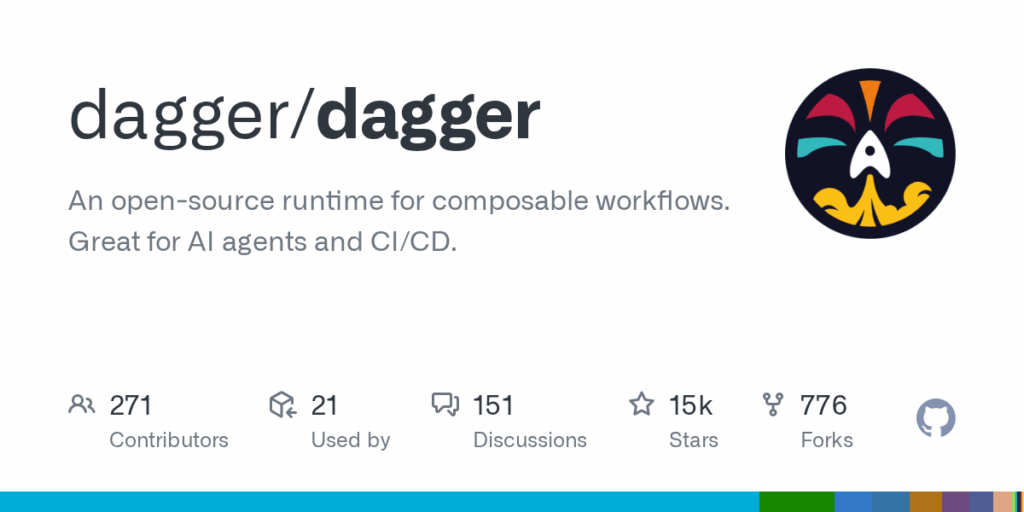dagger
Basic Information
Dagger is an open-source runtime for composable workflows designed for developers and teams building complex, repeatable systems such as AI agents and CI/CD pipelines. It turns code into containerized, composable operations that run across platforms and languages, enabling modular workflows with custom environments, parallel processing, and seamless chaining. The project emphasizes repeatability, modularity, observability, and cross-platform support so teams can build reproducible pipelines that mix tools from different ecosystems. Dagger provides native LLM augmentation to incorporate language models into workflows, a universal type system for safe language interop, automatic artifact caching to speed runs and reduce cost, and an interactive terminal for real-time prototyping, testing, and debugging. The repository includes documentation, community channels, and contribution guidance to help teams adopt and extend the runtime.








